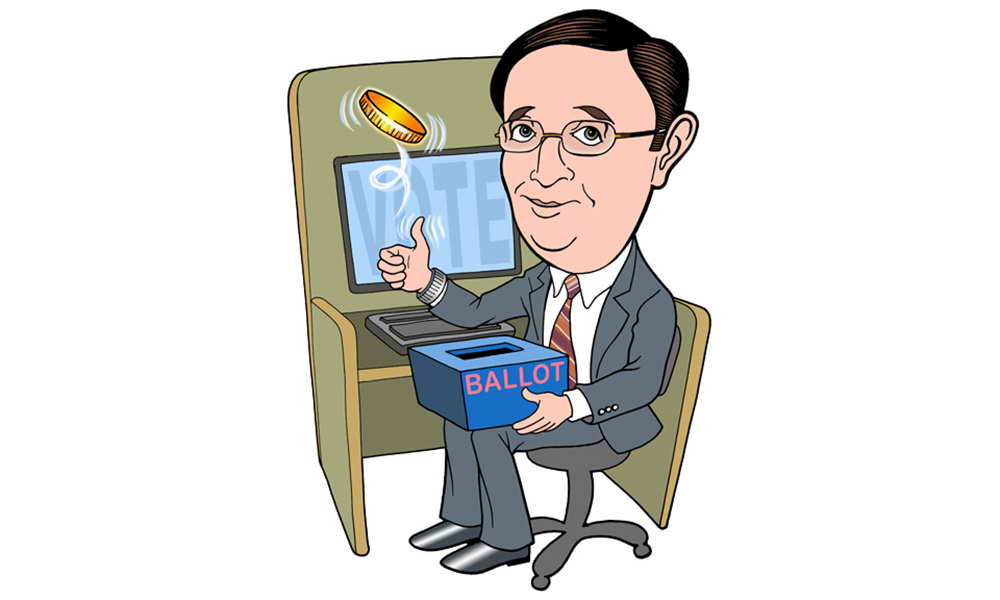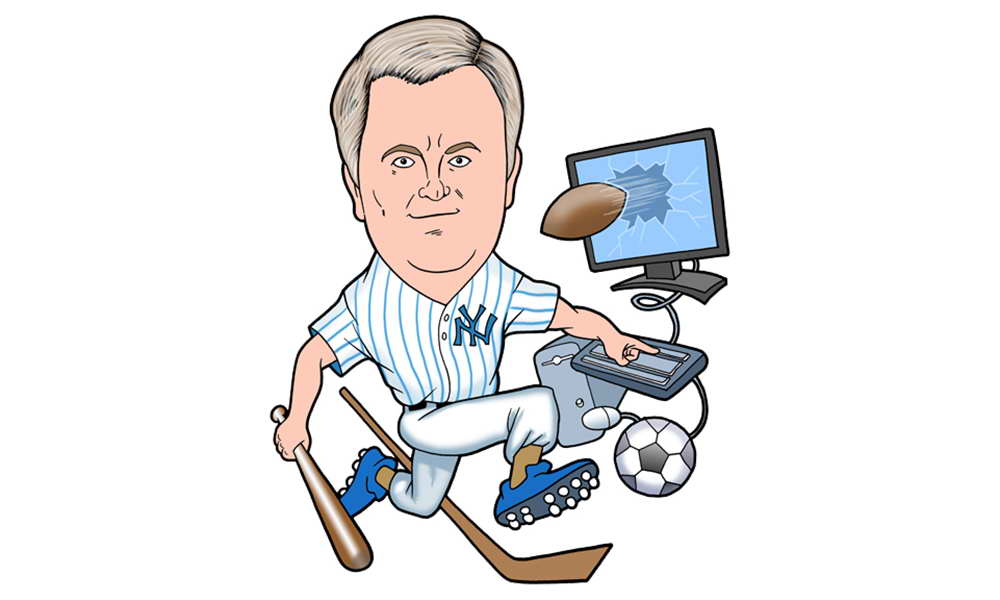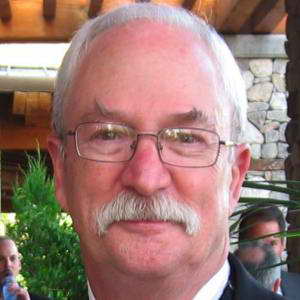By John Sparks
The Winter Olympics come around once every four years, but how popular are the games today? Verne Lundquist is CBS Sports Play-By-Play Broadcaster who has covered the 1992, 1994, and 1998 games. And, in a candid interview with The Marist Poll’s John Sparks, he discusses this year’s competition, addresses the issue of steroid use, and shares some of his own memories covering the games.
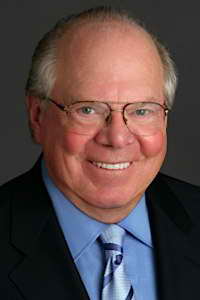
Verne Lundquist
John Sparks
Verne, you worked through Winter Olympics in ’92/’94/’98, I believe, for the network and of course you followed the Winter and Summer games for years. Do you think that folks follow the Olympic events as much as they have in years past?
Verne Lundquist
I get a sense that they don’t follow them quite as much, and I think particularly that’s true of Vancouver that’s coming up. I don’t … I just sense a general lack of a buzz about the games. And I live in a ski resort and we’ve got 17 athletes who either live in Steamboat Springs or train in Steamboat Springs and even there where you would expect to have a lot of conversation about what’s going to happen in Vancouver, I don’t get that the sense that it’s that prominent on anybody’s radar.
John Sparks
What do you think is the reason for that?
Verne Lundquist
I don’t know. I really don’t know. There just seems to be a real lack of awareness that the Olympics are going to take place.
John Sparks
You know when I think of your covering the Olympics, I immediately think of figure skating, of course. Is figure skating the event that you like the most?
Verne Lundquist
Yeah, absolute. Yes, absolutely it was. I just accidently fell into that. I can vividly remember when we were awarded the Olympic Games at CBS in the late ’80s and our first one was going to be in 1992. And as I just mentioned, I live in a ski resort, so I naturally assumed that I would get the chance to do the Alpine events, the downhill slalom, giant slalom. Billy Kidd was then our CBS analyst. He’s the director of skiing at Steamboat and a good friend, so I thought well that’s – – it’s just so natural. And then I got the call from New York and they said, “You’re doing figure skating.” And my initial reaction was not really positive, and the dirty little secret that I’ve managed to keep now, for what, almost 20 years, 18 for sure, since the ’92 Olympic games in Albertville, I didn’t know one jump from the other, and that’s where my dear friend Scott Hamilton saved my professional reputation because every time a jump was about to come up, he would reach over and just tap me on the forearm as if to say, “Shut up now, and I’ll take it.” And we’ve remained dear friends, and I’ve grown to love the sport.
John Sparks
Are there other events that you especially enjoy from the winter games?
Verne Lundquist
Yes, there are. There’s one particularly, and I think it would surprise folks, but again it goes back to where I live in Steamboat Springs, Colorado. Over the course of the last half century, maybe even more than that, our little community has sent now more than 80 athletes to the Winter games, 80. It’s astounding, and the most prominent of those who have represented our country from Steamboat are the Nordic Combined guys. And Todd Lodwick is kind of the leader of that group. He grew up in Steamboat, and I’ve known Todd for better than 20 years. Johnny Spillane is another Steamboat native who’s a part of the group, and a young man named Bill Demong, D-E-M-O-N-G, is from upstate New York, but he’s lived in Steamboat for a decade, and those three kids, not kids, I mean Todd’s in his 30’s now, and this will be his fifth, fifth, Olympic Games. That’s (unintelligible). But they might medal in Vancouver. They’ve gotten that good. So our whole community is going to be watching that event, the Nordic Combined. It’s a combination of ski jumping and cross-country racing and it’s really not on anybody’s radar in our country. It’s enormously popular in Scandinavia, as you can imagine.
John Sparks
Is there one particular event, one particular performance that stood out above all others in your memory at a Winter Olympics?
Verne Lundquist
Oh yeah. Yeah, John, 1994, we were involved in the cartoon that is known as Tonya and Nancy, right. And Scott and I were right in the middle of it, the whole unbelievable build up to that event. I just got a word from CBS, one of my friends who’s a vice president at the office in New York just sent me word that our Super Bowl coverage had an overnight rating of 46, a 46 share, which — or 46 rating rather, and that is the highest since 1987 for a Super Bowl, so we’re going to set a record number of viewers. In 1994 for Tonya and Nancy on the ice in Lillehammer, we had 48.5, and it’s the all-time highest rated Olympic show, and I don’t think anybody’s going to top that now on a fractured universe. So just to be a part of that is very, very memorable.
John Sparks
I can imagine. As a follow-up, do you have a favorite Olympic athlete who will be competing this month in Vancouver?
Verne Lundquist
Yes, I do, and I already mentioned him, Todd Lodwick. He’s … his grandparents lived in Steamboat Springs. His mom and dad served as the grand marshals of our winter carnival last weekend. The 97th winter carnival in Steamboat history, and it is — for a small community, it’s a huge event, and I’ve known Todd not since … well, since he was a teenager, a young teenager, and I first saw him compete in the Olympics in Lillehammer in ’94, and he’s been a part of everyone since, and they finished fourth, the team did, in Salt Lake City. They had a breakdown at the last minute, so I know how much it would mean to him if he could lead the Nordic Combined team to any kind of a podium finish in Vancouver.
John Sparks
Verne, there’s always been this issue about athletes being role models, and it’s difficult, as you know, to make a broad general assessment, but I’m going to ask you anyway. Do you think that the actions of the Olympic athletes teach our kids mostly good things or bad things?
Verne Lundquist
I think mostly good. I’m an optimist in some ways about what the lessons are that emanate from the athletes down to — into the young people’s world. I think the whole Olympic concept, I know it’s over-commercialized. We all understand and accept that, and I know that in the summer, I mean, the shoe companies just dictate so much and it — that tends to make one very cynical. But here again, I keep going back to these — the two sports in the Winter Olympics that I know best — figure skating and Nordic Combined. I really do know the kind of sacrifice that skaters, male and female, go through to earn a spot on their respected Olympic teams and the effort that’s put in, the dedication that’s required, and I know the same about the much less popular sport of Nordic Combined. And I think, I really believe, that on the whole, the lessons learned from these people who compete at that high level are beneficial to our youngsters.
John Sparks
Now Verne, no matter what the sport may be, whether we’re talking amateur or professional, the issue of drugs comes up, specifically these days performance enhancing drugs. And I’m just curious how common you think the use of steroids is among our Olympic athletes?
Verne Lundquist
Well I was optimistic about the previous question. I’m a little pessimistic and somewhat cynical about this one. It’s there, and it’s a constant race between those who find ways to mask the use of steroids or other performance enhancing drugs and those who try and catch them. We’ve seen what happened in baseball. I’m not foolish enough to think it doesn’t happen in the winter sports and the summer sports as well. I mean what track and field has gone through and may still be going through is alarming, and we’ve all heard about blood doping and other — anything it seems to me that by a certain group of people that can help you go become stronger, faster and jump higher, their level of cynicism seems to be a dominant facet of their lives. I’m going on and on here, but it bothers me. As pure as I’d like to think they are, I’m realistic enough to know that not all of them are.
John Sparks
Verne, anything else you might want to comment on concerning the Olympics which we haven’t talked about, and then I certainly want to ask you what’s going on with you these days?
Verne Lundquist
I’m heavily involved in our college basketball. I’ve got … I did a game in the West Coast last week. We had — Duke-Georgetown a week before in Washington and were blessed to have the President do commentary with Clark Kellogg and me. If I had to do one event before it’s all over for me, I’d love to get a shot at one more Olympics, either winter or summer. I’ve never done the summer, ever, ever. I’m terribly envious of Tom Hammond, who at NBC, who gets to do track and field in the summer and figure skating in the winter. That would be something I’d really love to do.
Related Story:
2/11: Let the Games Begin! 2010 Winter Olympics in Vancouver
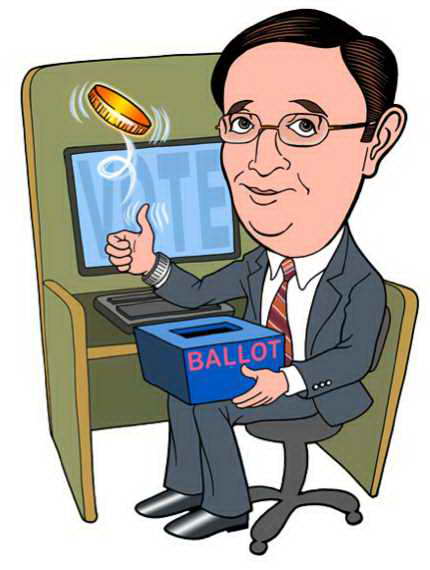 The Marist Poll released today, as well as those conducted by other organizations, shows Governor Paterson’s approval rating is scraping bottom. Yet, voters don’t want him to resign. New York Attorney General Andrew Cuomo, expected to announce his candidacy for governor once he can see his way clear of the Paterson investigation, had been the most popular statewide pol in New York. Yet, he is taking a hit in the current atmosphere and voters prefer an independent investigation of possible Paterson wrongdoing over Cuomo’s probe.
The Marist Poll released today, as well as those conducted by other organizations, shows Governor Paterson’s approval rating is scraping bottom. Yet, voters don’t want him to resign. New York Attorney General Andrew Cuomo, expected to announce his candidacy for governor once he can see his way clear of the Paterson investigation, had been the most popular statewide pol in New York. Yet, he is taking a hit in the current atmosphere and voters prefer an independent investigation of possible Paterson wrongdoing over Cuomo’s probe.

